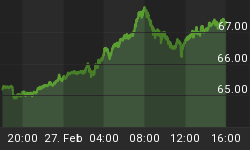The European Union stood ready to rescue Greece if needed after Fitch Ratings cut the country's credit rating to the lowest investment grade. The move appears to foretell that emergency bailout funding is forthcoming. During today's session, billionaire George Soros expressed his opinion about Greece by stating that "they have to be given some help from Europe or the IMF at concessional rate." He then added that "it is make or break time for the Euro and it's a question whether the political will to hold Europe together is there or not."
While Greece remained in limbo over its financial dilemma and the impending bailout, Germany continued to voice opposition to a plan to offer Greece loans at below market interest rates. At this time, details are being worked out for a plan to provide joint EU-International Monetary Fund aid to the debt ridden nation.
Worried traders drove up the premium to buy Greek 10-year bonds instead of German bunds to 442 basis points. At this level Greece will not be able to service its debt prompting Greek Prime Minister George Papandreou to say that borrowing costs at those levels are unsustainable.
The flurry of activity this past week and the inability of Greece to find low cost financing in the capital markets means that money will have to come from external sources very soon. The activity in the Euro suggests that an intervention is likely before the next trading session opens Sunday night.
On Friday, the U.S. Dollar finished lower across the board led by the Euro which was rebounding amid speculation that Greece was in line to receive financial aid as soon as this week-end.
The Euro soared to the upside as shorts scrambled to cover positions ahead of the week-end. Technically, the main trend is still down, but chart watchers are looking for a breakout to the upside once a long-term down trend line is pierced at 1.3517. There may be an acceleration to the upside once this barrier is crossed, but gains could be limited by a retracement zone at 1.3542 to 1.3610. The main trend will officially turn up on a trade through 1.3591.
The relief rally in the Euro helped to boost the GBP USD. In addition, this morning's bullish inflation report boosted the prospects for the start of an economic recovery. The Bank of England had been saying all along to expect a bumpy recovery and the last several months have proved this statement to be valid.
Technically, the British Pound broke through a combination downtrending Gann angle and 50% price level. This helped trigger an acceleration to the upside which turned the main trend to up when it crossed the last swing top at 1.5381. The short-term upside target is 1.5419. Surprisingly, all of this upside activity is taking place less than a month before a major election in the U.K. on May 6th.
The stronger Euro drove down the USD CHF. Technically, downside momentum is indicating a potential break to 1.0609 over the near-term. As long as the Euro remains strong, traders expect the Swiss National Bank to refrain from intervening. If Greece gets aid this week-end then look for this pair to open sharply lower Sunday night.
The USD JPY closed Friday's session lower. This session's weakness was attributed to speculation that China is ready to announce that it will allow the Yuan to appreciate against the Dollar. An increase in the value of the Yuan is likely to help the Japanese Yen while weakening the Australian and New Zealand Dollars.
Stronger demand for higher risk assets helped to weaken the USD CAD early in the trading session but a less than stellar Canadian Employment report helped trigger an intraday short-covering rally. This morning this Forex pair failed to take out the last swing bottom at .9975. The trend remains decisively lower despite today's short-covering rally.
Talk of U.S. interest rates remaining low for a prolonged period of time helped to boost demand for the higher yielding Australian Dollar, allowing this currency to finish at its high for the week. With the U.S. expected to keep interest rates low for a prolonged period and the Reserve Bank of Australia raising rates, the interest rate differential between the two countries is just too hard to ignore. Investors from countries with low yields are expected to continue to pour money into the Aussie to take advantage of the higher rates.
The NZD USD broke out to the upside for the same reason as the Aussie Dollar. Early in the trading session, the main trend turned up on the daily chart on the trade through the last swing top at .7132. Upside momentum indicates that this market is poised to test the Fib retracement price at .7199.















